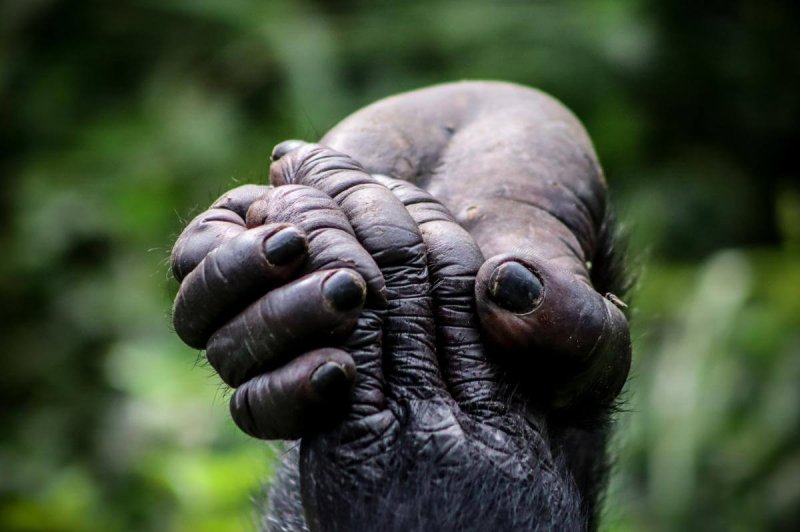With chimpanzees, the prospect of food can lead to aggression.
But bonobos take a different approach, says Suzy Kwetuenda, a biologist at [Democratic Republic of the Congo sanctuary Lola ya Bonobo], for whom English is a third language.”As you see, there is many action of sex, many negotiation,” she tells me. “So that make peace.”
This sort of harmony is why, for more than a decade, scientists from around the world have been coming to this sanctuary just outside Kinshasa, along the banks of the Lukaya River. The researchers think bonobos may help explain how humans evolved the capacity to be nice – at least some of the time.
Apparently selfless behavior may seem odd from an evolutionary perspective. But scientists believe it paved the way to the sort of large-scale cooperation that has helped Homo sapiens outlast other early humans, like Homo erectus. And this sort of cooperation has allowed our species to share new ideas, create vast nations and explore other planets.































